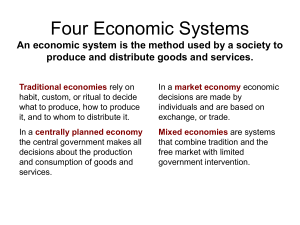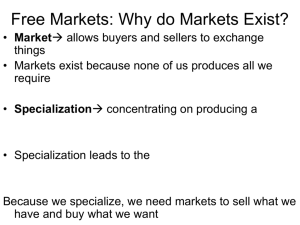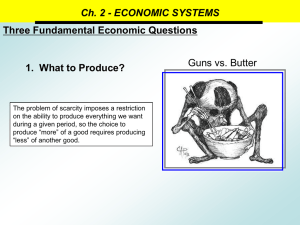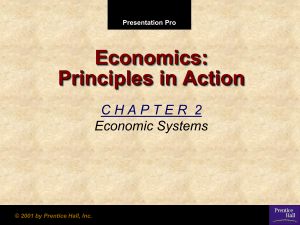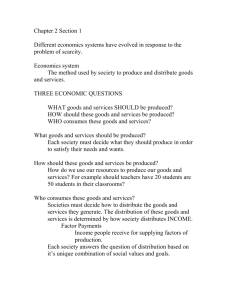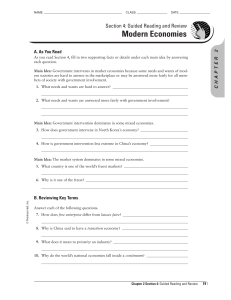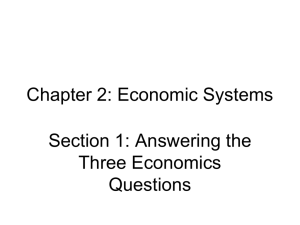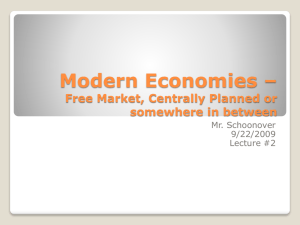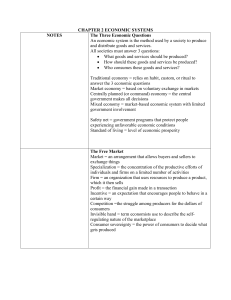Four Economic Systems: Market, Planned, Mixed Economies
advertisement
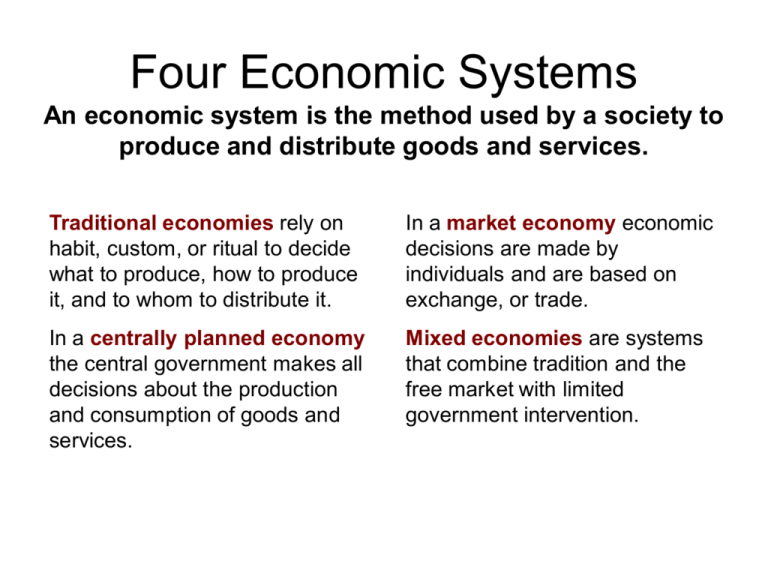
Four Economic Systems An economic system is the method used by a society to produce and distribute goods and services. Traditional economies rely on habit, custom, or ritual to decide what to produce, how to produce it, and to whom to distribute it. In a market economy economic decisions are made by individuals and are based on exchange, or trade. In a centrally planned economy the central government makes all decisions about the production and consumption of goods and services. Mixed economies are systems that combine tradition and the free market with limited government intervention. Why Do Markets Exist? \\Markets exist because none of us produces all the goods and services we require to satisfy our needs and wants. A market is an arrangement that allows buyers and sellers to exchange goods and services. Specialization is the concentration of the productive efforts of individuals and firms on a limited number of activities. The Rise of Mixed Economies Market economies, with all their advantages, have certain drawbacks. Limits of Laissez Faire Laissez faire is the doctrine that government generally should not interfere in the marketplace. Governments create laws protecting property rights and enforcing contracts. They also encourage innovation through patent laws. Comparing Mixed Economies • An economic system that permits the conduct of business with minimal government intervention is called free enterprise. The degree of government involvement in the economy varies among nations. Continuum of Mixed Economies Centrally planned Free market Iran North Korea Cuba South Africa China Russia France Botswana Greece United Kingdom Canada Peru Source: 1999 Index of Economic Freedom, Bryan T. Johnson, Kim R. Holmes, and Melanie Kirkpatrick Hong Kong Singapore United States
